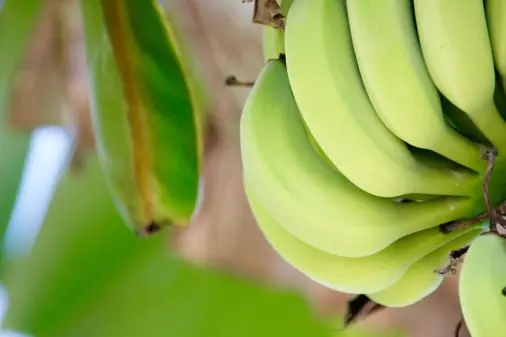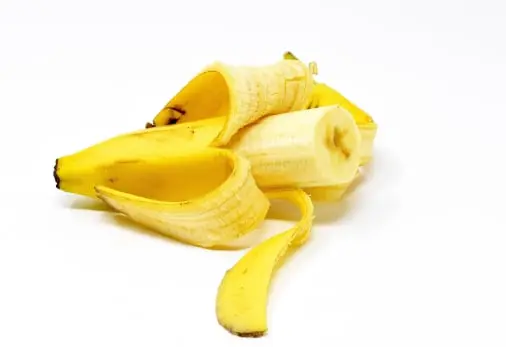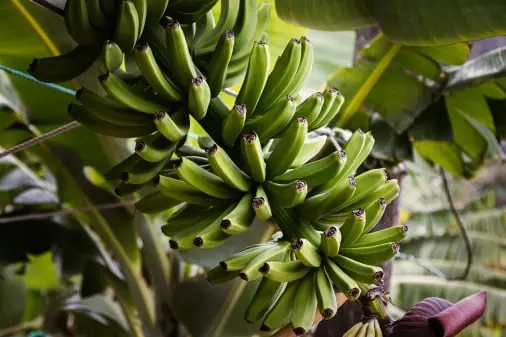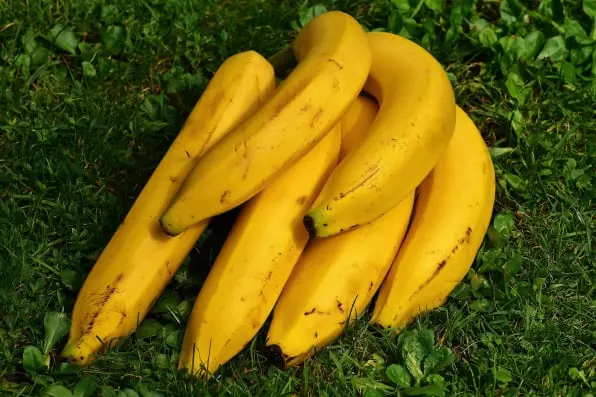Banana traceability app:
Banana traceability app manages banana traceability in the washing, sorting, and banana packing process. Full banana quality control, recalls, audits, and banana labels for traceability.

Banana Traceability during production & packing
View Traceability App Specifications.
BANANA TRACEABILITY
Australia's Bartle Frere Bananas using IoT and data to improve banana traceability
Everything from weather monitoring stations, soil moisture sensors, and RFID tags are helping Bartle Frere Bananas improve the way its bananas are grown and moved through the supply chain.
"If you can trace a cow, you can track anything," Gavin Devaney, owner and managing director of Bartle Frere Bananas told ZDNet. It's the reason why for the last two years he has been rolling out sensors and relying on data to improve the overall operation of his 250-acre North Queensland banana farm, including ensuring it meets management best practice.
On-site at Bartle Frere Bananas are weather monitoring stations and soil moisture sensors designed to help control irrigation levels on a section-by-section basis within each paddock, as well as solar-powered, inline nitrate sensors that regulate the use of fertilisation, monitor sediment, and reduce nitrate run-off.
Devaney explained that working with Hitachi Vantara to install these sensors has allowed him to gauge the size of the fruit and understand the potential impact that weather has on his crops.
"We're going through a process of seeing the effects of seasons and how bananas grow because, yes, we know that different seasons affect the fill rate on bananas and production, but this is giving us the actual micro measurement," he said.
The sensors have also helped to identify areas where Devaney was underwatering.
"Where I thought I was probably a high-water user, wasn't; I was underwatering … and I can see it in the crop" he said. "I haven't looked back since. I've been doing what I've been doing; it did change the way I had been watering and where I thought I could wait a little bit longer after the rain -- and I could do whatever I had to do -- but no, no, no I needed to be more in front of it and not behind it to be able to water right."
A supply-chain tracking system has been another addition to the farm's operations. Currently under trial, the farm has deployed radio-frequency identification (RFID) tags, encoded with a unique identification number, to track and trace the fruit from farm to market for banana traceability.
RFID tags are attached to each banana bunch in the paddock, which according to Devaney, makes them easier to locate when they are ready for bagging.
"It works in favour for us to control traffic … because if only 20 bells come out that week … my bagger has to go out and find those 20 bunches in a 10-acre paddock, so instead of him driving up and down every row … we are able to turn around, give him the location of a bunch in that paddock," he said.

Banana packhouse hygiene checklist for food safety
Once the bunches are sorted at the farm's shed, another Bluetooth barcode is affixed to the pallet to track the movement, temperature, and GPS location of the containers all the way to the shops. Being able to track and trace the fruit means better quality assurance, Devaney said.
"Look back to what happened to the strawberry industry, I never ever want to end up in that process where … due to something happening to a portion from our farm and I couldn't locate where the problem had come from … [we] might have to get rid of millions of dollars of fruit," he said.
The smart farm project was established between Bartle Frere Bananas and Hitachi Vantara, with funding support from the Australian government's National Landcare Program, Hort Innovation, as well as Horticultural Research, the Australian Banana Grower's Council, AusVeg, and more.
Tracking the World’s Bananas: Banana Traceabilty
Maybe it’s because the banana is such a complete food? Maybe because it’s the original convenient and portable meal?
While the root of the banana’s prevalence in the world’s diet can be debated, one thing that isn’t is that bananas are popular.
In fact, according to 2014 global industry report, they are the world’s most popular fruit.
As consumption continues to grow, banana producers are taking note of the potential industry impacts of unsustainable practices and adapting voluntary standards. These standards aim to address key sustainability issues along the global supply chains for bananas and include Fairtrade, Organic and Rainforest Alliance.
Frequentz’s tracking technology continues to play a key role in enabling supply chain stakeholders to verify compliance with these standards and provide transparency to customers.

Banana Traceability management best practices
Bananas Are Traceable
All loose bananas of PLUS are imported from Colombia and are Fairtrade certified since 2010. Currently, bananas are the most sold fresh food product in the PLUS supermarkets and are one of the most traded and consumed fruits in the world. This bears some negative side effects. The banana supply chains are under pressure because it causes negative impacts like environmental degradation, high water usage, and biodiversity loss. The environmental footprint and therefore the climate impact of the banana is significant. By making this supply chain transparent, it can help measure and monitor the environmental footprint of the individual actors in the banana supply chain. Therefore, PLUS, Fyffes and SIM worked together to take the traceability of the Fairtrade banana supply chain to the next level and make them climate neutral.
The solution
The Powerchain solution by SIM provides transparency about the product journey and actors involved through the supply chain while logging different product related information and quality checks. Data is captured and shared in detail through every step of the supply chain by the supply chain partners. In this case, the carbon footprint (CO2) of all individual actors have been calculated in collaboration with the Climate Neutral Group (CGN). Consumers are able to retrieve the details about the journey of their bananas by scanning a QR-code sticker on the banana and entering a farm group code.
CHECK-YOUR-BANANA WEBSITE OF PLUS
The consumer can see the timing and route of the journey of their banana, from which plantation or group of plantation it originates and which quality checks have been performed in the chain. Additionally, in the Powerchain applicable certificates (such as Fairtrade, Global Gap & Rainforest Alliance) are logged and verified for each step and actor in the supply chain. Next to this, the CO2 emissions of each batch of bananas are compensated based upon calculations of the Climate Neutral Group. As a result, the Climate Neutral bananas of PLUS are traceable from farm to the distribution center(DC) of PLUS while detailed product data is logged on the Powerchain and visible for consumers via the PLUS consumer website. The next step for the project partners is to decrease their carbon footprint by finding solutions in their own systems and processes that they can control and therefore start in setting.

Banana Supplier Traceability Management
QR code for the traceability of pineapple and organic bananas
According to an EFSA study published in June of this year, 53 percent of EU citizens surveyed say the issue of where their food comes from is a relevant purchasing criterion. The origin is therefore more important than costs (51%), food safety (50%) or their taste preference (49%).
PENNY recognized this trend at an early stage and is gradually introducing more extensive product and source information, especially for its own brands. From Monday 19-08-2019, all pineapples will be provided with a QR code. For these, customers can access a special website. There they will find detailed information about the respective plantation as well as its sustainability activities, audits or awards. In September (from 09-09 onwards) the Naturgut organic bananas will also appear with a corresponding QR code.
For example, PENNY customers can read that pineapple supplier Tropicales del Valle of San Carlos, Costa Rica, is a family business. The finca is located in the province of Alajuela, where mainly pineapple, but also sugar cane and coffee is being grown. The plant, which sold around 3.5 million boxes of pineapple last year, employs 364 people, 60 of whom are women. The company is certified Rainforest Alliance, GLOBAL G.A.P and GRASP. In addition, PENNY customers can find out in words and pictures that Tropicales del Valle has voluntarily protected 150,000 square meters of rainforest on the estate. In addition, the website provides general information on the sustainability commitment of PENNY (including REWE Group Central America Fund).
Ecological responsibility in the supply chain
"Our customers should be able to trust us and our products. With the introduction of the QR code we show that we are aware of our social and environmental responsibility in the supply chain. Customers who buy pineapples and bananas from us can do so with confidence and with a clear conscience because we place great value on the selection of our partners. In doing so, we also look at its environmental and social stance," said Stefan Magel, Divisional Board Member for Retail Trade REWE Group and COO PENNY.
BETTER BANANA TRACEABILITY
Ever wondered how the curvy yellow banana reached your fruit basket from the farm? The answer could be just a QR code scan away. Happy Banana, the fruit brand of Desai Fruit Ventures, has started to deploy Farm Trace, a QR Code solution that helps c.